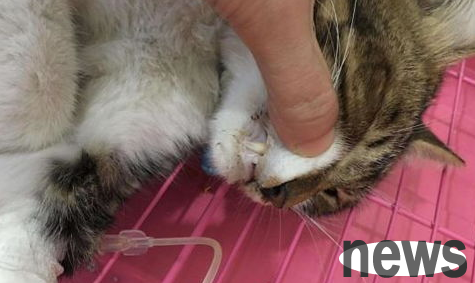Six principles that need to be adhered to when training cats
1. Never use violence
to let cats absorb water with their noses is a famous case of violence, don't do this. This practice is very serious torture to cats and can cause cats to urinate incontinence. Don't use newspapers or other light objects to hit the cat, it will keep remembering and avoid it immediately when it sees you again. If there is a reason for punishment, such as forbidding the cat to the dining table and it runs up, then you can't stand next to you with a smile. And it must be very clear that it cannot be done. Blow it down, or sprinkle watering on it with a watering can, which is enough to show it that something is forbidden. If a cat grabs your hand, you can howl in the way the cat may feel funny, but this is a clear and unmisunderstood signal.

2. Intervene immediately when doing bad things
The six principles that need to be adhered to
If the matter has passed, it is absolutely meaningless to punish the cat. The cat doesn't understand why its owner is so angry. This kind of thing is uneasy and doesn't know how to get along with others. Then other bad habits may develop, such as sloppy, unhygienic or catching things everywhere.
3. Praise as often as possible. Only after praise comes, then produces good results. Only when praise is truly of a gradual significance. Only when its effect is strengthened, even if it does not take effect immediately, at least it will not harm in the future. Using praise, reward and encouragement methods has achieved great success in the cat tune. Unfortunately, most cat owners often ignore the praise of their cats. If the cat is very well-behaved, they should praise it in time when scratching the itchy tree and learning to sleep and eat in the basket nest, or when it is very quiet in the car.
4. Persistence in the exception is always humane, but cats may just feel confused. Without certainty, the only exception may have such consequences. Cats will act according to their own, not human will.

5. Keeping distance
If you say no loudly or use similar methods to still not change the cat's bad habits, deterrent therapy can be used. That is, cats are suddenly frightened when doing bad things, such as through sudden bounces of rats or whistles screaming. But you can't let the cat feel that its owner is the mastermind who is frightened. This kind of thing may happen at any time, so the fifth principle is that if you want to use deterrent therapy to get rid of cat bad habits, you must stay out of it.
6. Patience, time, will
If you want to change the cat or make it adapt to something it fears, you must have great patience and give the cat a certain amount of time. Once it shows a little courage, immediately praise it and encourage it. Don’t care about setbacks, especially don’t show that you are angry with them. Therefore, the sixth principle is to have enough patience, time and strong will.















